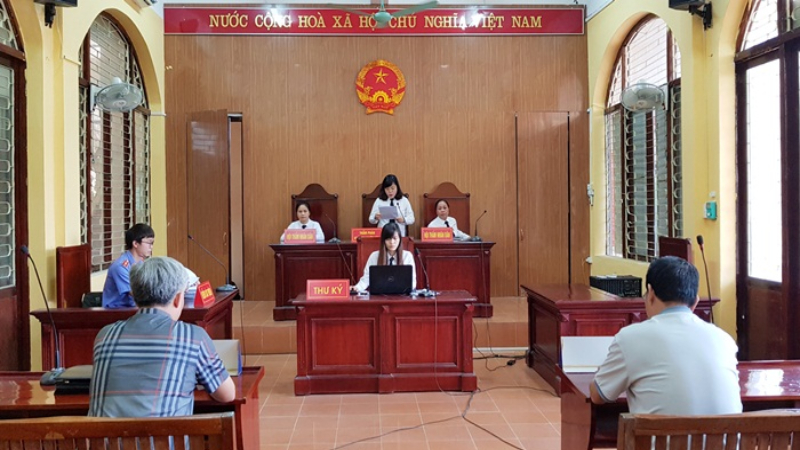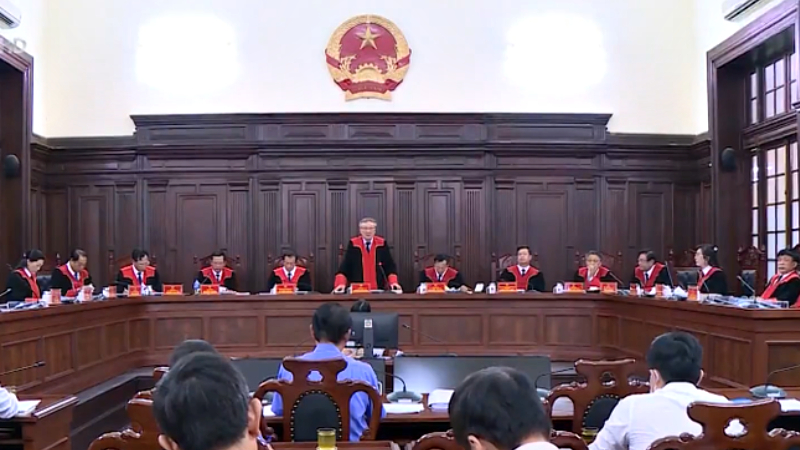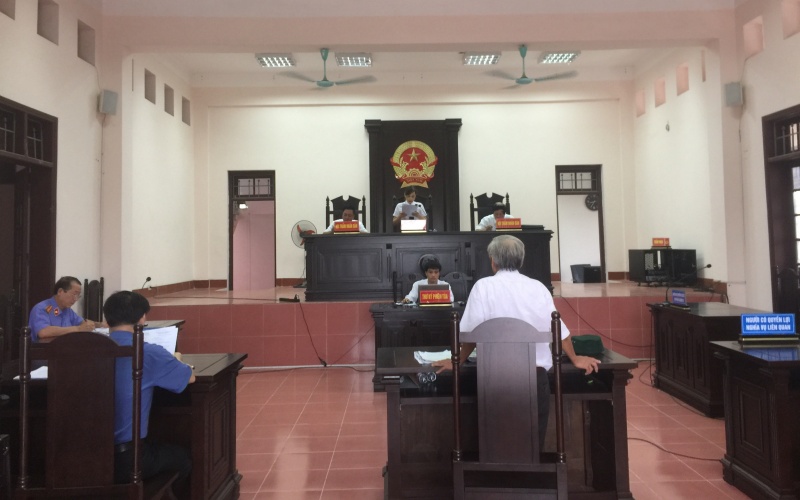Simplified procedures are now applied to save time in civil litigation cases. But do you really understand it and how to apply this procedure? Join us to explore these things through the following article!
1 What is the Simplified Civil Procedure?
 Simplified civil procedure has a simpler order than the normal procedure
Simplified civil procedure has a simpler order than the normal procedure
According to Article 316 of the 2015 Civil Procedure Code, “Simplified procedure is a procedure applied to resolve civil cases that meet the conditions prescribed by law with a simpler order than the procedure for resolving normal civil cases to resolve the case quickly but still ensure compliance with the law.”
In addition, this procedure is used by the court to resolve issues and cases related to civil, marriage and family, business and commerce, and labor matters, but it must meet the conditions prescribed by law.
The order of the simplified civil procedure is simpler than the procedure for resolving normal civil cases because it wants to bring convenience and speed to the performer.
2 Features of Simplified Civil Procedure
 Simplified civil procedure saves costs for the State and the parties
Simplified civil procedure saves costs for the State and the parties
As a simplified civil procedure, there are some differences from the normal procedure, so you need to refer to the following:
- Cases that meet the conditions prescribed by law will be subject to the civil procedure. These conditions include disputes with clear evidence, simple dispute content, and disputed property of not high value. However, the conditions may change depending on the civil procedure law of each country and each period.
- The implementation order of the simplified civil procedure is simpler than the normal civil procedure.
- The simplified civil procedure has a shorter resolution time than the normal procedure. Although the time is short, it still resolves in accordance with the law.
- When resolving the simplified procedure, the State and the parties will reduce many costs.
3 Significance of Simplified Procedure for Resolving Civil Cases
 Implementing the simplified procedure helps the State have more time to resolve complex cases
Implementing the simplified procedure helps the State have more time to resolve complex cases
- Because the implementation time is shortened, the parties performing the simplified civil procedure will be protected quickly and effectively. The parties will have the case resolved decisively and their infringed social relations restored in a timely manner.
- The State and the participating parties will save time, costs, and human resources when performing the simplified civil procedure. In addition, the State will have more time and resources to resolve difficult and complex civil cases.
- In addition to the State and the parties, this procedure also helps judges have more time to focus on resolving other cases and enhance their responsibility when performing.
4 Conditions for Applying Simplified Procedure in Civil Procedure
 To apply the simplified procedure, the case must have simple circumstances
To apply the simplified procedure, the case must have simple circumstances
To perform the simplified procedure in civil procedure, according to the provisions of Article 317, Clause 1 of the 2015 Civil Procedure Code, the participant must meet the following conditions:
- Simple case circumstances, clear legal relationship, and the defendant has admitted the obligation.
- Evidence and documents must be complete and relevant to the case for reference and resolution; the court does not need to collect documents and evidence.
- The address of the place of residence or headquarters of the parties must be clear.
- The simplified procedure in civil procedure is only applied in the case of a defendant residing abroad and a defendant in Vietnam who has agreed to request the court to resolve or the parties have agreed on the handling of assets and can present evidence of the legitimate ownership of the assets. The procedure will not apply to defendants residing abroad and disputed property abroad.
 Apply the simplified procedure when the transaction value is less than VND 100 million
Apply the simplified procedure when the transaction value is less than VND 100 million
However, according to the provisions of Clause 2, Article 41 of the 2010 Law on Protection of Consumer Rights, in addition to the above conditions, to perform the procedure, it is necessary to meet the criterion of the value of the dispute. In the case of performing the simplified procedure for civil cases on the protection of consumer rights, it is necessary to meet the following conditions:
- Simple case circumstances and clear evidence.
- The transaction value is less than VND 100 million.
- The defendant is an organization or individual directly providing goods or services to consumers, and the plaintiff is a consumer.
 When new circumstances are discovered, the case will be resolved through the normal procedure
When new circumstances are discovered, the case will be resolved through the normal procedure
According to the 2015 Civil Procedure Code, in case of preparing to hear a case according to the simplified procedure but discovering new circumstances that do not meet the conditions for resolution according to the simplified procedure, the court will transfer the case to be resolved through the normal procedure. Here are some circumstances that you can refer to:
- Circumstances that do not have the agreement of the parties and require more time to verify, search, collect data, evidence, or perform appraisals.
- The parties do not agree on the price when the case needs to determine the price and appraise the value of the disputed property.
- A person with related rights and obligations is additionally involved.
- There are additional defendants residing abroad, disputed property abroad, and the need to verify and collect evidence abroad.
According to Article 321 of the 2015 Civil Procedure Code on the validity of judgments and decisions under the simplified procedure:
The first-instance judgment or decision of the Court under the simplified procedure may be appealed or protested under the appellate procedure to request the appellate court to resolve again under the appellate simplified procedure. Judgments and decisions under the simplified procedure may also be protested under the cassation and retrial procedures.
According to the provisions of Clause 2, Article 6 of Resolution No. 326/2016/UBTTQH14, dated December 30, 2016 of the National Assembly Standing Committee of the 14th Legislature.
Regulations on court fees: “For cases of resolving disputes over civil, marriage and family, business and commerce, labor, and administrative cases settled under the simplified procedure, the court fee rate is 50% of the court fee rate prescribed in Item A of the Table of Court Fees and Charges issued together with this Resolution.”
The above is a concept of simplified procedure and conditions for applying the procedure that you need to pay attention to when implementing. Follow us for more useful information.

































